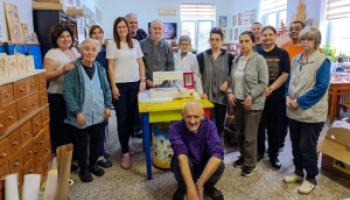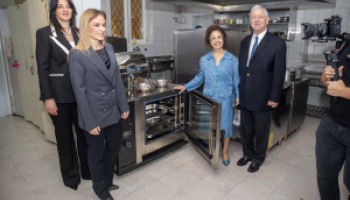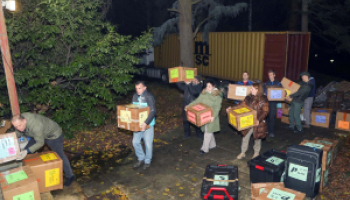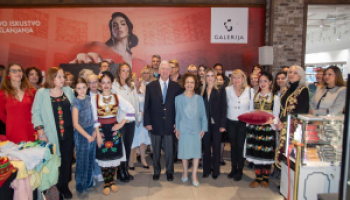- Home
- News & Events
- PROF.DR TATJANA STANKOVIC INTERVIEW FOR POLITIKA – WE ARE ON THE THRESHOLD OF PERSONALIZED CANCER TREATMENT WITH THE HELP OF GENES
PROF.DR TATJANA STANKOVIC INTERVIEW FOR POLITIKA – WE ARE ON THE THRESHOLD OF PERSONALIZED CANCER TREATMENT WITH THE HELP OF GENES
27 Jun 2022
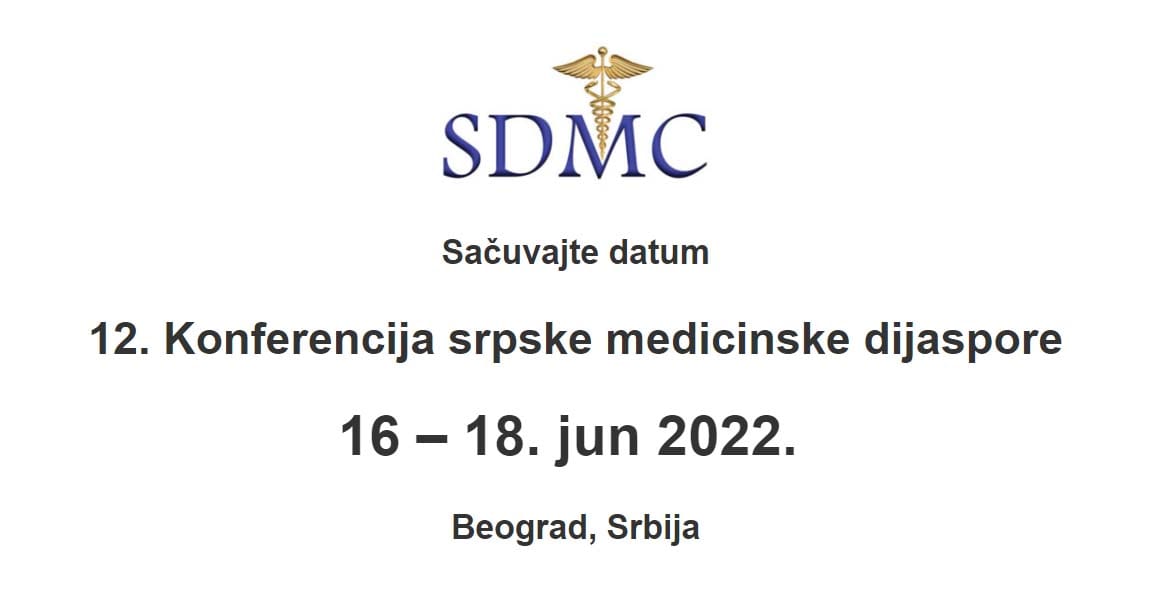
Prof. Dr. Tatjana Stankovic, University of Birmingham, interview for “Politika”
We are on the threshold of personalized cancer treatment with the help of genes
In an exclusive interview for “Politika”, Prof. Dr. Tatjana Stankovic spoke about the achievements and experiences as medical professional, but also about the importance of the Serbian Diaspora Medical Conference, that is organized under the patronage of HRH Crown prince Alexander and Crown Princess Katherine. The interview was prepared by the journalist of “Politika”, Mrs. Daniela Davivov Kesar, to whom we thank this time as well.
The text, which was published in the printed edition and on the website of Politika is also available below.
One of the most famous Serbian doctors who has made a great career on a global scale is Professor Dr. Tatjana Stankovic, who deals with cancer genetics at the University of Birmingham in Great Britain. She has published more than 90 scientific research papers in prestigious journals, and was named Doctor of the Year in the UK. In a conversation with “Politika”, Dr. Stankovic says that they made a great discovery in 1999. “We found that a gene associated with one of the cancer syndromes can be mutated in adults in the general population who do not suffer from cancer syndrome, but may be born with a mutated copy of this gene, which of course increases their risk of leukemia. This discovery completely determined my further research. Since that gene participates in DNA repair, that discovery led me to analyze other genes with similar function and thus discover the entire spectrum of DNA repair genes that participate in the development of leukemia”, Dr. Stankovic points out.
With a team of experts, you discovered that this particular gene is important in the development of leukemia. Why is it important?
Congenital mutations in the Ataxia teleangiectasia mutated (ATM) gene are the cause of cancer syndrome, which can lead to the development of leukemia and lymphoma in childhood. The same gene can become mutated in blood cells later in life, which usually leads to the development of chronic lymphocytic leukemia in the elderly. The significance of this finding lies in the fact that the same form of therapy, which specifically targets ATM mutations, can be used both in leukemia in children and in leukemia in adults with this mutation.
You deal with cancer genetics. How can these tests be done?
Today’s methodology enables not only the identification of the entire genome of one cancer, but also the discovery of the genome of each individual cell in the cancer. This explosive development of the methodology showed us that the cancer of each patient is unique and that it contains a range of clones that should be taken into account when choosing a therapy. In addition to methods for mass sequencing of cancer, today we have very sophisticated cancer models that allow us to predict in laboratory conditions which forms of therapy will be most useful for each patient individually.
What are the results of using a drug that aims not only to heal damaged DNA?
Most standard cytostatics cause DNA damage and activation of genes involved in DNA repair. A drug that damages DNA is all the more effective if DNA repair in cancer cells is less effective. That is why it is of great importance that cancer treatments with inefficient DNA repair are recognized. In cancer genetics, we call it the identification of a biomarker that allows efficient selection of patients for a particular therapy.
Are we on the verge of finding a therapy that will cure cancer?
I think we are primarily on the threshold of a personalized approach to cancer treatment. This means that we approach each patient according to the genetic composition of his cancer and monitor the effect of therapy and the evolution of tumors at the molecular level. Today, a huge number of drugs are available that target specific mutations, so there is reason for optimism that cancers can either be cured or take the form of a chronic disease.
How different is the treatment of blood cancer in Serbia and Great Britain?
In the UK, targeted therapies for various forms of blood cancer are being used more, thanks to excellent collaboration with the pharmaceutical industry and a large amount of clinical research with new drugs. I think that is the future, because the clinical trials lead to clear answers as to which type of patient is suitable and who is resistant to a certain therapy.
How important is your cooperation with the Crown Princess Katherine Foundation and participation in the upcoming Serbian Diaspora Medical Conference?
It is always a great pleasure for me to participate in the Diaspora Medical Conference, which is getting better every year. The Crown Princess Katherine Foundation brings together international experts from various fields of medicine and medical science, and encourages the young generation of doctors to make useful contacts and improve in their branches of medicine. I think that is the most important outcome of these gatherings, because the world belongs to the young.
Danijela Davidov Kesar



